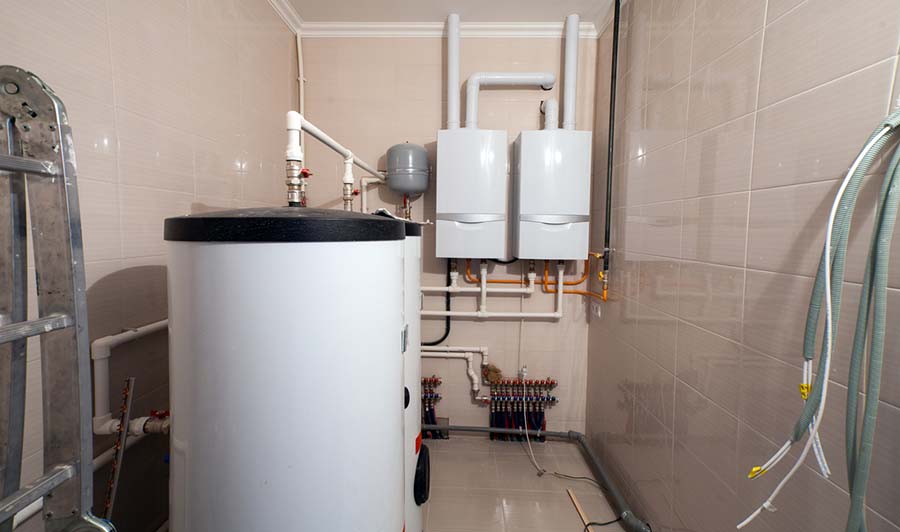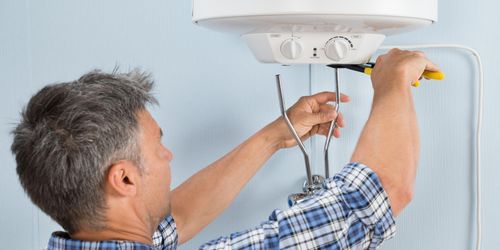Tackling the Most Frequent Hot Water Heater Emergencies
Tackling the Most Frequent Hot Water Heater Emergencies
Blog Article
Almost everyone maintains their own perception when it comes to Is Your Water Heater Leaking?.

A hot water heater is just one of one of the most important basic appliances that can be discovered in a residence. With hot water heater, you don't need to go through the stress of heating water manually each time there is a requirement to wash, wash, or the meals. There is always an opportunity that your water heating system would act up as with most mechanical devices.
It is very important to note any kind of little breakdown as well as tackle it swiftly before points get out of hand. Many times, your water heater begins to malfunction when there is a build-up of debris as a result of constant use. As a precaution, periodic flushing of your water heater is recommended to prevent debris buildup and also avoid useful failure.
Typical water heater emergency situations and also just how to take care of them
Too little warm water
Dealing with an inadequate supply of hot water can be aggravating. It might be that the hot water heater can not sustain the warm water need for your home. To manage this problem, you could try to change your heating unit's temperature level dial as well as wait on a few minutes. You can ask for the help of a specialist plumber if the trouble lingers. Conversely, you could upgrade your hot water heater to one with a larger capacity.
Rising and fall water temperature.
Your water heater can start generating water of different temperature levels typically ice cool or hot warm. In this situation, the first thing you do is to make certain that the temperature is set to the wanted level. If after doing this, the water temperature level maintains changing during showers or various other tasks, you could have a defective thermostat. There might be a requirement to change either the home heating or the thermostat device of your water heater.
Leaking hot water heater tank.
In this situation, you should transform off your water heater, permit it to cool down, as well as very carefully look for the source of the trouble. At times, all you need to do is to tighten a couple of screws or pipe links in instances of small leakages. If this does not function and the leakage continues, you may require to employ the services of a service technician for an ideal substitute.
Tarnished or smelly water
When this happens, you need to recognize if the concern is from the water or the storage tank source. If there is no amusing smell when you run chilly water, after that you are certain that it is your water heating system that is faulty. The smelly water can be created by rust or the build-up of germs or debris in the water heater tank.
Final thought
Some homeowners disregard little warning and also minor faults in their hot water heater system. This just brings about more damages and a possible complete break down of your device. You need to deal with your water heater mistakes as quickly as they come near stay clear of even more expenses and also unneeded emergency problems.
With water heating systems, you do not require to go with the anxiety of home heating water manually every time there is a requirement to take a bathroom, do the laundry, or the recipes. It might be that the water heating system can not sustain the hot water need for your apartment. Your water heating unit might begin generating water of various temperatures typically ice hot or chilly warm. If there is no funny smell when you run chilly water, then you are certain that it is your water heating unit that is faulty. The smelly water can be created by rust or the build-up of microorganisms or sediments in the water heating system tank.
Common Water Heater Issues and What You Should Do
What Type of Water Heater Do You Have?
Before we begin it’s first important that you identify the type of water heater you have on your property. There are two main types of water heaters out there: conventional and high efficiency.
Both of these types of products typically use either gas or electricity to heat power. There are also solar water heaters that use a thermal collector on the roof or yard to heat the water.
While these models are not as common, they can cut heating costs in half. In this article, we will focus on conventional and high efficiency.
How Do My Electric and Gas Water Heater Work?
Though they look similar, electric and gas water heaters work very differently. It’s important to know their basic function because often problems can be specific to the heating source.
In the electric model, a thermostat on the side of the machine detects the temperature of the water in the tank. When the temperature needs to rise electricity flows to a heating element suspended in the water.
Gas models also use a thermostat device — typically with a mercury sensor at the tip and an additional sensor called a thermocouple. The thermocouple detects whether the pilot light is on and controls the flow of gas.
When the thermostat drops below the appropriate level gas is released which becomes ignited by the pilot light. The flame heats the bottom of the water tank which causes hot water to rise and cold water to drop.
This natural circulation continues until the water reaches the desired temperature. Then, the thermostat triggers the gas control valve to shut off the flow of gas.
What Are the Most Common Issues and How Do You Fix Them?
https://happyhiller.com/blog/common-water-heater-issues-and-what-you-should-do/

I discovered that content on Is Your Water Heater Leaking? while doing a lookup on the search engines. So long as you liked our blog posting if you please remember to share it. We treasure reading our article about Is Your Water Heater Leaking?.
Stress-free? Call now! Report this page